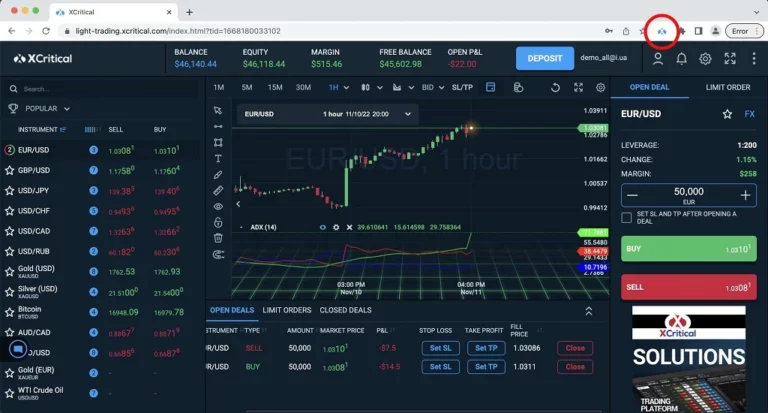Content
For more information on the topic, refer to our What Is a Decentralized Exchange (DEX)? If you’re happy with the services Cryptocurrency exchange offered by the CEX you’re using, there’s no need to switch. For many, a CEX offers the right balance of ease of use and available support. If you’re a new trader or only have experience in traditional finance, the difference between a CEX and DEX can be confusing. A CEX works similarly to what you’d find in the world of stocks — a single entity operates using an order book in which market makers and takers place orders. The order book then matches buyers with sellers, taking a small cut of the transaction as a fee.

Advantages and Disadvantages of DEX
For example, there are also decentralized derivatives exchanges, which allow users to trade crypto futures dex vs cex contracts with leverage. The most popular decentralized derivatives exchanges at the moment are GMX and dYdX. A centralized exchange (CEX) is the most popular type of cryptocurrency exchange. A centralized exchange is essentially an online cryptocurrency trading platform that is managed by a company.
Paybis 2024 Wrap-Up: Key Achievements
The exchange will also take custody of the assets you want to trade on the CEX after you’ve deposited them into your CEX account. He holds certifications from Duke University in decentralized finance (DeFi) and blockchain technology. DEXs offer transparent and secure trading options but https://www.xcritical.com/ come with risks that users must manage carefully.
- CEXs can suspend trading activities and prevent you from accessing your funds.
- It’s important to understand the differences between a centralized vs decentralized exchange so you can choose based on what you’re looking for in a crypto exchange.
- DEXs promote transparency and reduce reliance on centralized entities, offering a more decentralized and trustless trading experience.
- In recent years, at least hundreds of such exchanges have emerged globally.
Understanding Tether USDT, TRC20 vs ERC20 USDT, and Much More
However, for the purposes of this article, it’s important to know there are two main types of exchange; centralized and decentralized. Currently, the AMM (automated market maker) design is by far the most popular among decentralized exchanges. The AMM design was pioneered by Uniswap, and it’s most distinctive feature is that it doesn’t have an orderbook.
Dutch Auctions NFTs: The Future of Digital Art and Blockchain
Users who want to trade on a centralized exchange have to deposit fiat money or cryptocurrency into an account or wallet controlled by the exchange’s operators. When a user wants to cash out from the platform, they need to submit a withdrawal request for their fiat money or cryptocurrency. Some of the most popular decentralized exchanges include Uniswap, PancakeSwap, and SushiSwap. Some well-known centralized exchanges include Coinbase, Binance, and Kraken. These platforms are popular due to their ease of use, extensive asset offerings, and beginner-friendly features. A decentralized exchange is a peer-to-peer marketplace where you may trade cryptocurrencies directly with other users, bypassing the middlemen.
It’s important to do your research and compare different exchanges before choosing one to trade on. The Indian crypto tax law imposes a 30% tax rate on the income from the transfer of digital assets. In theory, one can avoid crypto taxes by using DEXs since you can’t withdraw in fiat via a DEX. But investors would have to convert their crypto gains into fiat at some point in time to utilize it.
These smart contract-driven exchanges are run by peer-to-peer platforms allowing users to trade cryptocurrencies directly without intermediaries or middlemen. Privacy comes at a cost however, as smart contracts are still not as secure as doing transactions with third party involvement. Loaning tokens through a DEX also tends to have higher interest rates than doing the same through a CEX. The vast majority of DEX users will never experience anything like a hacker attack. Decentralized exchanges might offer direct ownership over your tokens and more privacy, and centralized ones are more vulnerable to hacks. Binance, founded by Changpeng Zhao in 2017, is a centralized exchange (CEX) where users can trade a vast array of cryptocurrencies.

These platforms are also vulnerable to hacks due to their centralized nature, with several high-profile incidents resulting in significant losses for users. Additionally, CEX platforms are subject to regulatory oversight, which can impact their operations and may limit certain features or transactions. CEXs are generally more user-friendly, offering easy-to-navigate platforms, customer support, and various trading tools. While improving, DEXs can still be more complex, requiring users to understand concepts like wallet management and gas fees. However, DEXs can be more accessible since they don’t require personal information to create an account.
Plus, they do not offer on-ramping services, so you can’t buy your first crypto on these platforms. A centralized exchange is created and owned by a single organization. Notable centralized exchanges include Coinbase, Binance, Kraken, and Gemini, to mention a few.
Centralized exchanges certainly hold an advantage over DEXes in terms of convenience. They provide investors and traders with a user-friendly crypto trading solution, which in most cases is easy to understand even for beginners. Decentralized exchanges are still in their nascent phase and come with extra levels of complexity.
Hybrid exchange models are also emerging, combining CEX convenience with DEX control. These platforms aim to offer the best of both worlds, blending ease of use with enhanced security and user autonomy. CEXs are more compliant with regulations, as they require users to complete Know Your Customer (KYC) procedures. DEXs, in contrast, prioritize anonymity, allowing you to trade without revealing your identity.
On the other hand, a “DEX,” which stands for decentralized exchange, is a fully automated exchange that operates without holding the private keys of its users. This enables decentralized exchanges to offer traders anonymity and to enjoy more flexibility. It’s impossible to define decentralized and centralized exchanges without instantly pinning down the fundamental distinction between the two – governance. As already mentioned, DEXes are fully decentralized, with reliance on users and liquidity providers and zero dependence on financial regulators. On the other hand, CEXes are governed by centralized, for-profit authorities and based on internal structures and independent IT infrastructures. It acts as an intermediary to facilitate the trading of cryptocurrencies, managing users’ funds, maintaining the order book, and executing trades on behalf of the users.
Centralized exchanges (CEXs) are cryptocurrency exchanges that monitor and facilitate crypto asset trading between users with the help of a centralized intermediary. Like traditional electronic stock exchanges, CEXs use an order book system to display and match buy and sell orders from users. The exact boundaries between DEX and CEX are often not crystal clear, and there are numerous crypto exchanges that mix DEX principles with CEX principles. In this article we are going to observe the differences between these two exchange types and check out the pros and cons of each. Your choice between a CEX or DEX will depend on your priorities and preferences as a trader. If you value speed, liquidity, and a user-friendly interface, a centralized exchange may be more suitable.
The main advantages of a decentralized exchange are undoubtedly privacy and full control over your crypto. The best DEX exchanges are those that operate with non-custodial wallets, giving you direct access and full control over your funds. A true DEX does not take part directly in the transaction afterwards and neither does it at any moment have any ownership over your money. This alone is an advantage that makes many privacy-conscious people choose a DEX, instead of a CEX, whatever the disadvantages might be. Currently, the limited availability of trading options in decentralized exchanges discourages more experienced traders.

